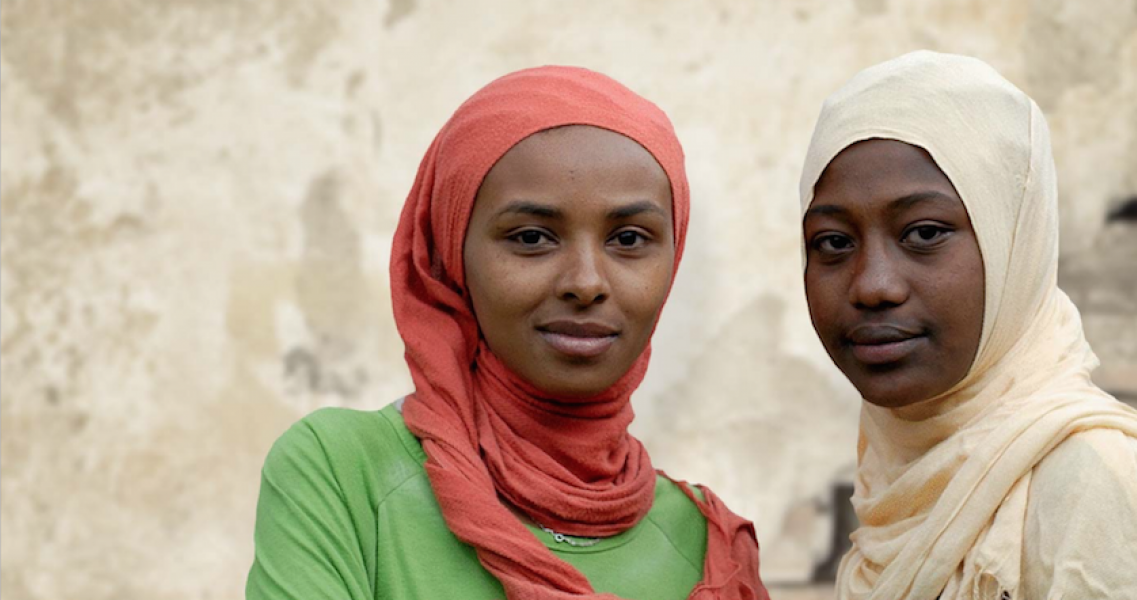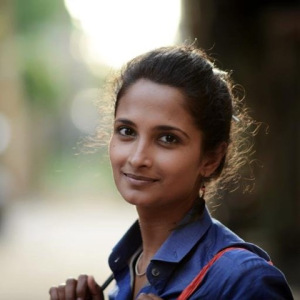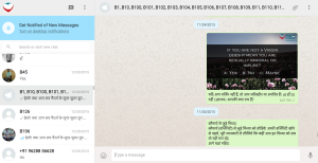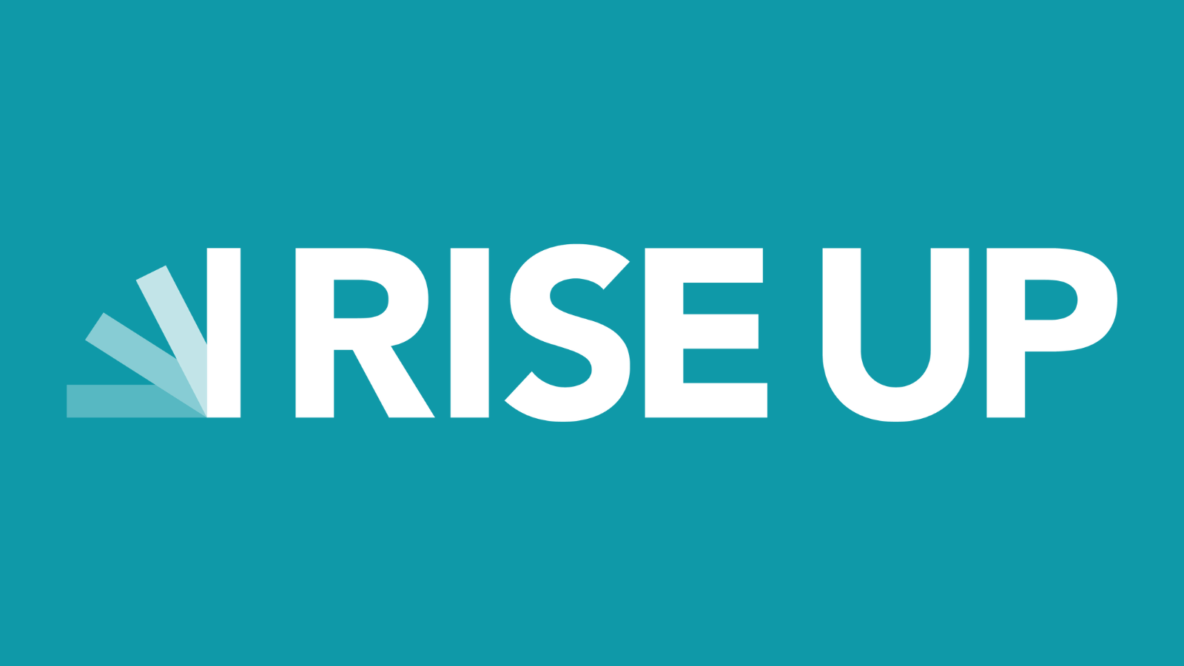Rise Up speaks with Youth Champion Gayatri Parameswaran of Love Matters.

Rise Up is pleased to launch our Impact Blog Series for the Women Deliver conference in Copenhagen, Denmark. This series highlights the work of two Champions for Change (C4C) leaders in Nigeria and one Youth Champions Initiative (YCI) leader from India. C4C’s Champions in Nigeria are working together to save the lives of mothers, children and young women through innovative advocacy and leadership development. YCI’s Champion in India is working to lead the sexual and reproductive health and rights (SRHR) movement for the next generation.
This series brings a diversity of perspectives to the table to discuss their critical work in driving the progress in maternal, sexual, and reproductive health and rights, as well as sharing the impact they have made through partnerships, awareness raising, and innovation.
We are featuring an interactive discussion with Francesca Adeola Abiola of Action Health Inc., an NGO in Nigeria dedicated to promoting young people’s health and development to ensure their successful transition to a healthy and productive adulthood; Wale Adeleye ofCivil Society for Family Planning, an NGO in Nigeria dedicated to addressing various aspects of reproductive, maternal, newborn, and child health advocacy, with a special interest in family planning; and Gayatri Parameswaran of Love Matters, a global platform about love, sex, relationships, and everything in between for young adults in India.
In the third part of this series, Rise Up speaks with Gayatri Parameswaran, web editor and video coordinator, Love Matters, New Delhi, India
 When I was 19, I helped a close friend go through an abortion in Mumbai, India. The stigma and taboos around the topic meant we had to keep it a secret. We had a lot of questions but very few answers. I still remember that feeling of being lost and in search of reliable and non-judgmental information.
When I was 19, I helped a close friend go through an abortion in Mumbai, India. The stigma and taboos around the topic meant we had to keep it a secret. We had a lot of questions but very few answers. I still remember that feeling of being lost and in search of reliable and non-judgmental information.
As I grew older and became a journalist with a focus on human rights, I kept returning to topics related to sexual and reproductive health and rights (SRHR). I realised there was a big void in India in talking about sex, sexuality and everything around it. Over half the states in the country back then banned comprehensive sexuality education. Even when it was taught in schools, it wasn’t rights-based education. I really wanted to break the taboos around sex and empower young people with information regarding SRHR.
In 2011, I came in contact with just the right platform for that. I started contributing to Love Matters – a bilingual (Hindi and English) website that gives blush-free information to young people in India. The platform reached young people where they were – online and on social media. Success was inevitable. We currently have over 1.5 million sessions on the website every month.
Factoring in the popularity and success of the launch in India, Love Matters soon expanded to five other regions – Kenya, Egypt, Mexico and China. Simultaneously, my role grew into becoming an editor at Love Matters India until earlier this year when I became the video strategist and producer at Love Matters (Global).
Back in 2014, my colleague forwarded the call for applications to the Youth Champions Initiative (YCI). I was immediately inspired and applied for this grant opportunity. I was on top of the world to hear that I had been selected.
After an intense one-week incubator at the Silicon Valley, I developed a proposal to run a pilot program that would test if WhatsApp is a good medium to deliver SRHR information to the Love Matters audience in India. While there was research done on SRHR information delivered via SMS, no one had yet looked into mobile instant messaging (MIM) applications like WhatsApp. That gave the project an innovative edge.
During the three-month pilot, 256 subscribers participated in a WhatsApp broadcast list. That meant they received three messages containing SRHR information per week. Moreover, on the Love Matters India website, we embedded social sharing icons on all content pages. This allowed our visitors to share the content from the website directly via any of the social media buttons – Facebook, WhatsApp, E-mail, Twitter and Google Plus.
At the end of the pilot, we conducted a user satisfaction survey for our WhatsApp broadcast list participants. Ninety-seven percent of the respondents said they thought WhatsApp was a good medium to receive information regarding love, sex and relationships.
 To measure the usage of the social sharing buttons embedded on our websites, we employed a combination of Google Analytics and Java script tracking methods. The E-mail sharing button was the most popular, followed by WhatsApp, Facebook, Twitter and Google Plus – a big learning for us.
To measure the usage of the social sharing buttons embedded on our websites, we employed a combination of Google Analytics and Java script tracking methods. The E-mail sharing button was the most popular, followed by WhatsApp, Facebook, Twitter and Google Plus – a big learning for us.
Although I am a tech-sceptic, while leading the WhatsApp pilot, I learned that technology and modern means of communication can be used to bridge gaps in our world and democratise SRHR information that can empower and change young people’s lives. These are the lives that matter and play a huge role in shaping our world’s future.
I am invited to be part of the Women Deliver Conference – the largest gathering of women, girl and youth leaders from around the world – in Copenhagen starting next week. It’s an honour to witness such a large gathering and to be actively involved. The challenge though, will be to facilitate a conversation that’s inclusive and representative of women and youth from different strata of society and from different parts of the world.
We invite you to follow us on Twitter at @RiseUp_Together and use the hashtags #RiseUpTogether and #WD2016 to engage more closely with the Impact Blog Series for Women Deliver, the work of the three leaders whose work is being highlighted, and the larger conversation surrounding reproductive, maternal, newborn, adolescent and child health in Nigeria as well as sexual and reproductive health and rights in India.
Youth Champions Initiative is a Packard Foundation-supported program of Rise Up and works to advance innovation and quality in the field of sexual and reproductive health and rights globally. The Youth Champions Initiative invests in visionary young champions who will lead the sexual and reproductive health and rights (SRHR) movement for the next generation. Youth Champions Initiative leverages a program model developed by its sister initiatives, Champions for Change and Let Girls Lead, which contribute to improved health, education, livelihood and rights for more than 115 million girls, youth and women globally. This powerful model drives change through the passage of national laws, implementation of programs, and distribution of funds to ensure access to quality healthcare, education, and economic opportunity. Rise Up is headquartered at the Public Health Institute in Oakland, CA, a leader in global health and development for 50 years.


